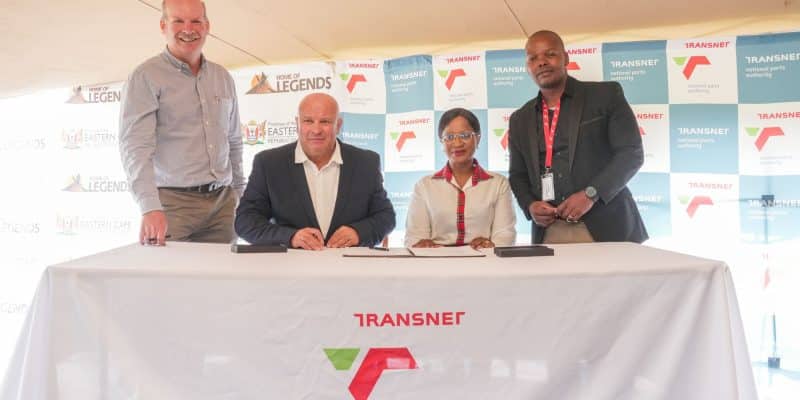In South Africa, the port of East London, located at the mouth of the Buffalo River in the Eastern Cape province, will be producing part of its drinking water thanks to a solar-powered seawater desalination plant. The Transnet National Ports Authority (TNPA), which is developing the project, has awarded the contract to the Sun Water East London joint venture.
The port of East London, the only remaining river port in South Africa, will soon be improving the supply of drinking water to its users, thanks to a seawater desalination plant. The move, which is part of the Transnet National Ports Authority’s (TNPA) strategic plan on resilience and security of water supply for public services by 2029, was announced on 3 April 2024. The TNPA, which is developing the water project, has awarded the works to the Sun Water East London joint venture, formed by Norland Civil Engineers and Contractors and Impact Water Solutions (PTY) Ltd (IWS).
A new seawater desalination plant will supply 500 m3 of drinking water a day to the port, located at the mouth of the Buffalo River in the drought-stricken Eastern Cape province. “The introduction of this alternative water solution is a step towards improving the port system and seeks to minimise TNPA’s dependence on external parties for the supply of fresh water,” said Phyllis Difeto, TNPA’s Acting Managing Director.
A solar-powered station
Under the contract, valued at 60 million South African rand (nearly $3.24 million), the South African group Norland will provide the engineering and equipment required to ensure that the future desalination plant is built to the highest quality and delivered on time. Its compatriot, IWS, will provide expertise in the construction and operation of the plant. Under the terms of the contract, Sun Water East London will operate the seawater desalination plant for a period of seven years.
IWS will also equip the new facility with solar panels, which will help to reduce the East London seawater desalination plant’s electricity bills and greenhouse gas (GHG) emissions, as desalination is very energy-intensive.
Inès Magoum





